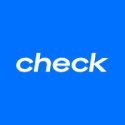Hire Our Vetted Elite Latin American Remote Developers
Work with hand selected and rigorously vetted Elite Latin American remote talent, assigned to you in 24 hours.
Latam's largest tech talent platform






Our Talents
Hire Latin American developers from our elite talent pool that has served world-leading organizations.
CloudDevs difference
Pay only for the time the job takes
We charge a transparent rate of $45-70/ hour when you hire Latin American developers through CloudDevs. Hiring our elite, time-zone matched talents will save you 60% to 50% in cost compared to hiring a developer locally or through other alternatives.
Find your talent match
Step 1
Tell us your requirements
Let's get on a call to discuss your development needs in more detail so we can offer you the best service.
Step 2
We'll find your perfect fit
Receive a shortlist of candidates within 24h. Get on a call with the talents to identify your perfect match.
Step 3
Start your risk-free trial
Hire LatAm developers on a 1-week risk-free trial and get to work via a dedicated Slack workspace!
Three ways to hire with us
Freelance Hires
Hire senior, pre-vetted tech talents from Latin America through CloudDevs' Freelance Hires service. Access our elite talent pool at an hourly rate, for part-time or full-time requirements, while having the flexibility to convert them to direct hires if and when required.
Direct Recruitment
Our streamlined, cost-effective recruitment process is ideal for companies searching for full-time hires. Use our Direct Recruitment service to onboard talents directly from our pre-vetted pool, eliminating all the hassles of traditional recruitment.
Team Augmentation
Assemble your dream tech team with CloudDevs’ pre-vetted LatAm talent. Seamlessly integrate our elite talents into your existing team through our Team Augmentation services, and leave it to us to handle all legal, compliance, and administrative complexities.
Your team
Currently you have 6 talents on your team
Build your remote tech team
With skilled LATAM developers for projects based on your talent requirements
Why choose CloudDevs for Latam hires?
Our vetting process
All our talents undergo a 3-step vetting process to ensure top quality services to our clients.
Communication & Personality check
During the initial video call, the candidates' personality is assessed and they're tested on their English language communication skills.
Skills Test
During the second stage of the interview a more detailed technical skills evaluation is conducted based on their specific fields and expertise.
Problem solving challenge
The final stage of vetting involves a live coding challenge to determine the talents' problem solving and critical thinking skills.
Why do top companies recruit remote talent from Latin America?
80k+
Engineers
1k+
Cities
15+
Countries
20+
Technologies
FAQs About Hiring LATAM Developers
Hire nearshore developers today!
Connect with us to experience personalized assistance tailored to your needs



